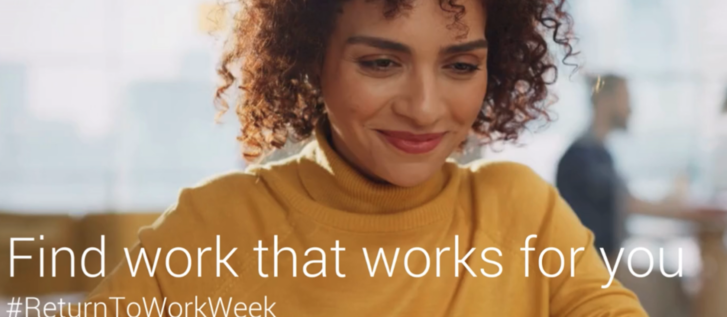
How to be a man
How to be a man, the Channel 4 two-part programme which launched this week, promised a lot...read more
If you haven’t done a tax return before the prospect might be daunting, but it doesn’t have to be difficult

One of the big concerns about going freelance is sorting out your tax. As an employee the taxman magics away his share before your wages reach your account. When you’re self employed you’ve got to fill in your own tax return and make sure there’s enough cash to meet the bill.
Most of us will have heard freelance friends stressing over the self-assessment deadline and you’ve probably heard a tale or two about a friend of a friend who got unfairly strung up by HMRC.
But for the vast majority of freelancers it’s really very straightforward. And we’ve set out to make it even easier by putting some common tax questions to expert Andrew Chamberlain, the deputy director of policy at the Association of Independent Professionals and Self Employed (IPSE)
The first big implication is that you’ve got to do your own accounts and report your own tax
Employees don’t have to worry about the administration that goes with paying tax, it just happens.
As a self employed person you have to account for your own tax via a self-assessment form every year and pay it in a lump sum either once or twice a year.
If you’re well organised it needn’t take up that much of your time. If you have an organised system, you keep on top your income and your outgoings then filling in your self-assessment shouldn’t be too bad.
Some people decide to use an accountant and that usually is not prohibitively expensive. An accountant can make sure you’re filling in the forms correctly but perhaps more importantly they can make sure you’re not paying too much tax.
If your business is a bit more complex an accountant can help with things like using annual allowances to carry things over at year end and calculating depreciation if you have fixed assets in your business.
Most people will never hear from HMRC, but if you do, if they query something it can be invasive – you have to find certain records for example and that can be time consuming.
And HMRC can make mistakes! It’s not unknown for them to send important mail to the wrong address for example and that can lead to all sorts of problems that can be really hard to sort out even though it’s not your fault.
But that’s not typical. For most self-employed people you’ll not hear from them.
The other side of the coin is when you need to get in touch with them. It can be hard getting through to them if you’re looking for guidance and getting good advice from HMRC that you can depend upon can be a frustrating process.
The apps are really just book-keeping software. If you’ve got a simple business, perhaps you don’t work full time and you’re just sending out a few invoices per month you can probably do without. If your business is a bit more complex – say you’re a self-employed gardener getting round up to 10 clients every day it’s probably worth getting one of the apps to help you keep track.
If you can afford to put between 20-30% of every invoice away you should be fine when it comes to paying your tax bill and you may well have a bit left over to plough back into the business or carry over to the next tax bill.
Self-employed people pay two classes of National Insurance.
You pay Class 2 regardless of profits. Some people choose to pay this in two instalments in the year.
You also pay Class 4 NI which is there to top up your contributions and make sure that if you need it you’re entitled to things like pensions and social security.
Only if your turnover is over £85,000 per year. If you’re making less than that you don’t have to worry about it.
You can voluntarily register for VAT if your income is lower and there used to be some advantage in that but it’s no longer applicable.
No. You can register as self-employed and trade as a sole trader which is a fairly straightforward process.
You can choose to operate through a limited company and it has some advantages, the main one is that your assets are protected so if you do something wrong and a client comes after you through the courts they can’t take your car or your house for example.
If you are earning over £40,000 as a freelance it’s possible your tax bill could be a smidge lower if you incorporate but it’s marginal.
This is an option that’s becoming increasingly popular, some people call it a side-hustle while others describe themselves as ‘slashies’ as in they are a photgrapher/dog-walker.
No matter which tax band you are in you will keep some of the extra that you earn so it’s worthwhile. But you must declare the extra income, you must take responsibility for paying the tax due on it.
This is where people fall out with HMRC who have to decide who is genuinely self-employed and who is not but is declaring they are and operating as a limited company in order to take advantage of lower corporation tax rates rather than income tax rates. It’s all about what’s called disguised employees.
The trouble is, because the definition is still being determined by a growing body of case law, no-one really understand IR35, including HMRC. They’ve lost five out of the last six cases they’ve brought to tribunal, including a high profile one involving Lorraine Kelly in which they were trying to claim £1.2million in tax that ought to have been paid – but the court found in favour of Lorraine Kelly.
The government is trying to change the way IR35 works so that it’s the client’s call if IR35 applies or not rather than the contractor. Because big companies that use freelancers are likely to be risk averse the worry is they’ll just put everyone inside IR35 to avoid any trouble for themselves further down the line but that will leave lots of genuine freelancers paying more tax than is necessary.
It’s a huge issue that IPSE continues to campaign on very vigorously.
For more information visit IPSE’s home page here

Contractor expert Crawford Temple says umbrella work may appeal to first-time contractors amid rising job insecurity, but he counsels conducting due... read more

The last episode of the current series of the Mums. Dads.Work podcast focuses on practical advice on setting up a business. read more

Over on our sister sites Working Mums and Working Wise, it's been a bonanza of events and guides to getting back into employment. Check it out. read more

How a dad (and entrepreneur) turned a devastating experience into something wonderful for parents and the planet. read more